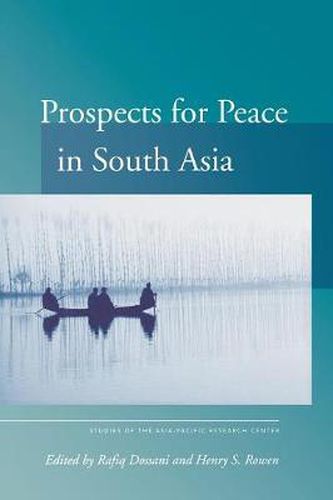Readings Newsletter
Become a Readings Member to make your shopping experience even easier.
Sign in or sign up for free!
You’re not far away from qualifying for FREE standard shipping within Australia
You’ve qualified for FREE standard shipping within Australia
The cart is loading…






Prospects for Peace in South Asia addresses the largely hostile, often violent relations between India and Pakistan that date from their independence in 1947. The most persistent conflict between the two neighboring countries over Kashmir has defied numerous international attempts at resolution and entered its most dangerous phase when both India and Pakistan became nuclear powers in 1998. The struggle over Kashmir is enduringly rooted in national identity, religion, and human rights. It has also influenced the politicization of Pakistan’s army, religious radicalism, and nuclearization in both countries. This incisive volume analyzes these forces, their impact on relations between the two countries, and alternative roles the United States might play in resolving the dispute. While acknowledging the risks, the book is optimistic about peace in South Asia. The key argument is that many of the domestic concerns (such as territorial integrity in both countries and civilian-military rapprochment in Pakistan) that were fueling the conflict have abated.
$9.00 standard shipping within Australia
FREE standard shipping within Australia for orders over $100.00
Express & International shipping calculated at checkout
Prospects for Peace in South Asia addresses the largely hostile, often violent relations between India and Pakistan that date from their independence in 1947. The most persistent conflict between the two neighboring countries over Kashmir has defied numerous international attempts at resolution and entered its most dangerous phase when both India and Pakistan became nuclear powers in 1998. The struggle over Kashmir is enduringly rooted in national identity, religion, and human rights. It has also influenced the politicization of Pakistan’s army, religious radicalism, and nuclearization in both countries. This incisive volume analyzes these forces, their impact on relations between the two countries, and alternative roles the United States might play in resolving the dispute. While acknowledging the risks, the book is optimistic about peace in South Asia. The key argument is that many of the domestic concerns (such as territorial integrity in both countries and civilian-military rapprochment in Pakistan) that were fueling the conflict have abated.